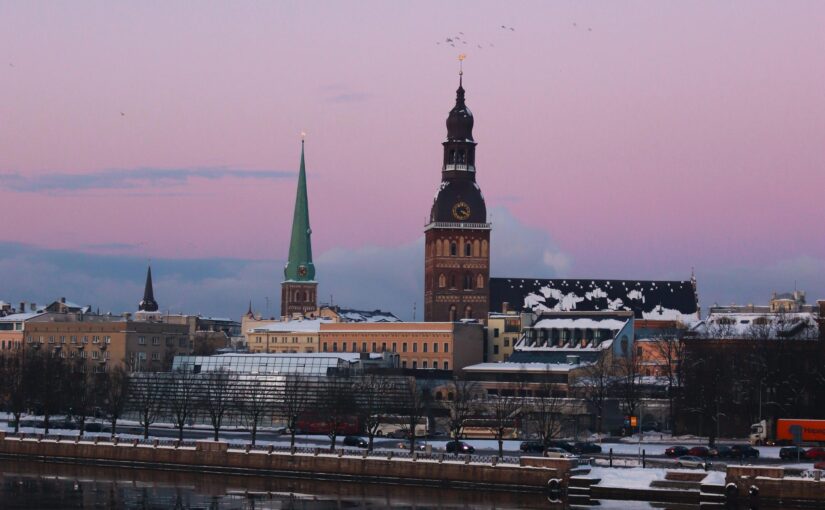Field of study in Wageningen: Environmental Sciences
Study period exchange: 01/02/2022 – 03/07/2022
Country (exchange): Latvia
City (exchange): Riga
University (exchange): University of Latvia
Faculty (exchange): Business, Economics and Management
2. Motivation for exchange
Why did you choose to go on study exchange?
Firstly, I wanted to challenge myself on a more personal level by throwing myself in a completely new environment with no familiarities. In terms of study, I wanted to study outside of my study field to orientate for my master program and thought, why not abroad.
What is the reason you chose for this country/university?
As I wanted to explore a social discipline, but do not have the background knowledge (on paper). The universities that would take me in as an environmental sciences student in their social faculties were limited. Also, I do not make use of the aeration industry so that also limited my options. Riga, specifically the University of Latvia, caught my attention as it survived the two mentioned benchmarks, and I was curious to learn more about this country. I had not been to the East of Europe before this exchange and that is why I wanted to go to Riga even more.
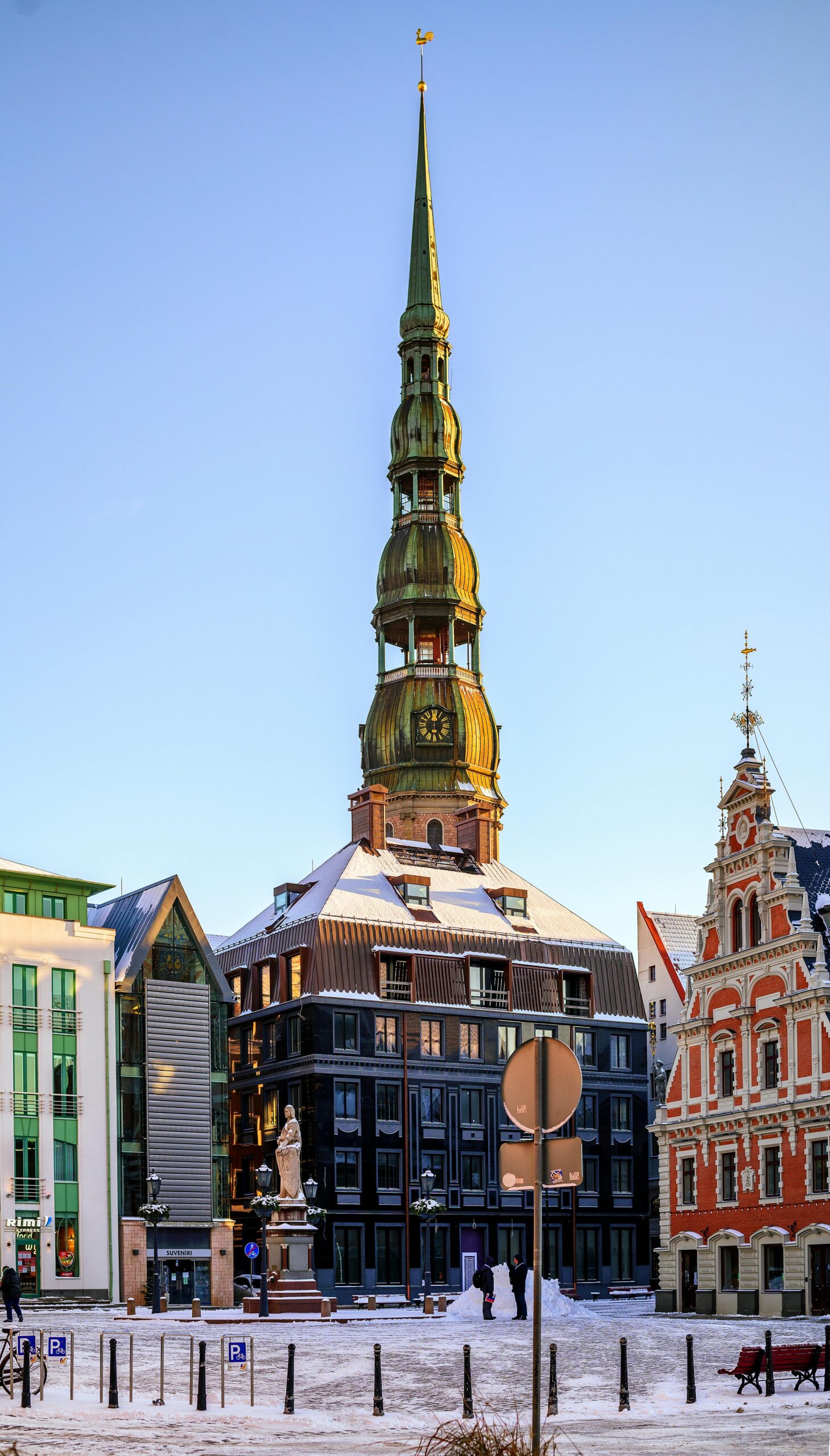
3. Accessibility to reach destination
Do you have any tips to reach your exchange destination?
I only travel by public transport as I mentioned, so my tips are based on this practice. Ecolines is a bus company that has a direct connection from Bonn (Germany) to Riga (Latvia). You can also take part in this trip later then Bonn of course; I travelled by train from Ede-Wageningen to Berlin and from Berlin took this bus directly to Riga. (This was actually cheaper than airplane tickets.) Ecolines allows quite a lot of luggage on this trip, which is nice. If your suitcase is bigger then the allowed measurements, you can request to take it by emailing the company in advance and pay 20 euros in cash to the bus driver (I did this). It will be very difficult to cross the border into the Baltics by train, because the old Soviet rail network does not match with the rest of Europe. That is why I recommend this bus to avoid 10 transfers and taking multiple trains and busses etc. Also, you do not need a stay overnight somewhere as the direct bus drives through the night.
4. University and studying
Could you provide some general information about the followed courses? 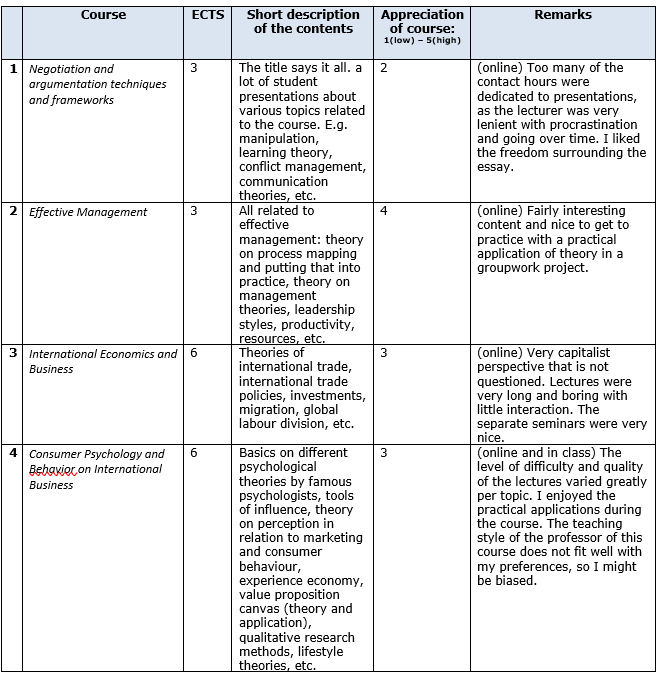
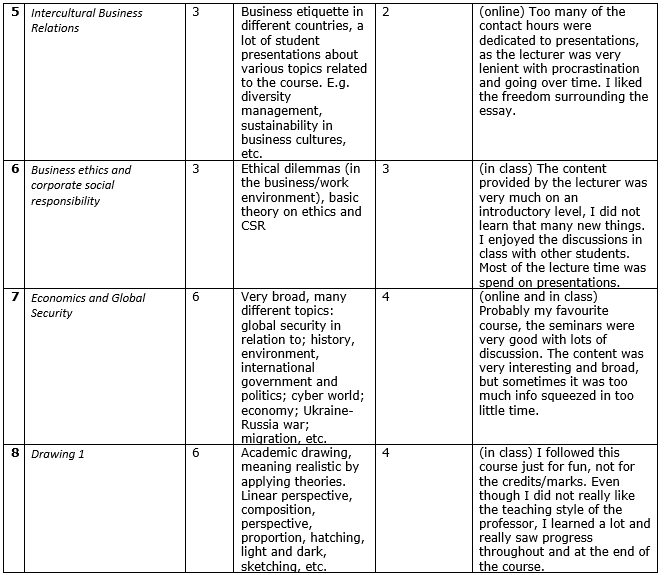
How is the study formalized?
Compared to WUR, the workload is fairly low; I managed to follow roughly 18/20 ECTS in the timespan of 2 months. Examination is really easy, mostly based on repetition of theory. There are lots of presentations, in every course. I followed mostly bachelor courses, while I am a 4th year bachelor student, the academic level was a bit too low for me. One lecture lasts for 1,5 hours without breaks. Often, I has 1,5 h lecture, half an hour break and then another 1,5 hours of the same course. Really ineffective in my opinion, especially online it was almost impossible to stay focused.

What is the culture of the university?
I would say it depends on a bit per lecturer, but generally the lecturers are as approachable as at WUR; very approachable. I addressed most lecturers by their first name.
What does the university offer the student additionally?
In my faculty building there was no canteen and I did not hear anything from my friends about a cafeteria in their buildings. Sports are very cheap, but the selection is slim/limited. I did make use of it, 2 trainings a week of self-defense.
5. Housing-travelling-living
What are the possibilities for housing?
The university has some houses with dorms. LU communicates very well on how to do this with deadlines etc. I did not make use of it. On facebook there are some groups in which either students post available rooms in their student houses (very well known as ‘hospiteren’ in the Netherlands) or landlords themselves post their rooms.

What is the culture of the country like?
People tend to be not very friendly, they do not greet strangers, just minding their own business, just taking what is given because at least it is something, etc. I tried to learn a bit about the history of Latvia and based on that the social culture is not a surprise. It is a pretty religious country. Not everybody speaks English, not even youth and older generations almost never speak English, with Russian you will have a way higher chance. Cuisine is just a lot of potatoes and meat. The spatial planning will be shocking when you travel through the country, there is lots of forest and just unbuild space.
Could you give a general price indication of the place of residence compared to living in Wageningen?
The price is like to be either similar to Wageningen or less. I pay between €300-250 per month, in Wageningen €370.
Could you give some information about public transport infrastructure?
Public transport is super affordable, but not necessarily quicker. The fastest way to get around is by bike or taxi. Taxi is also pretty cheap.
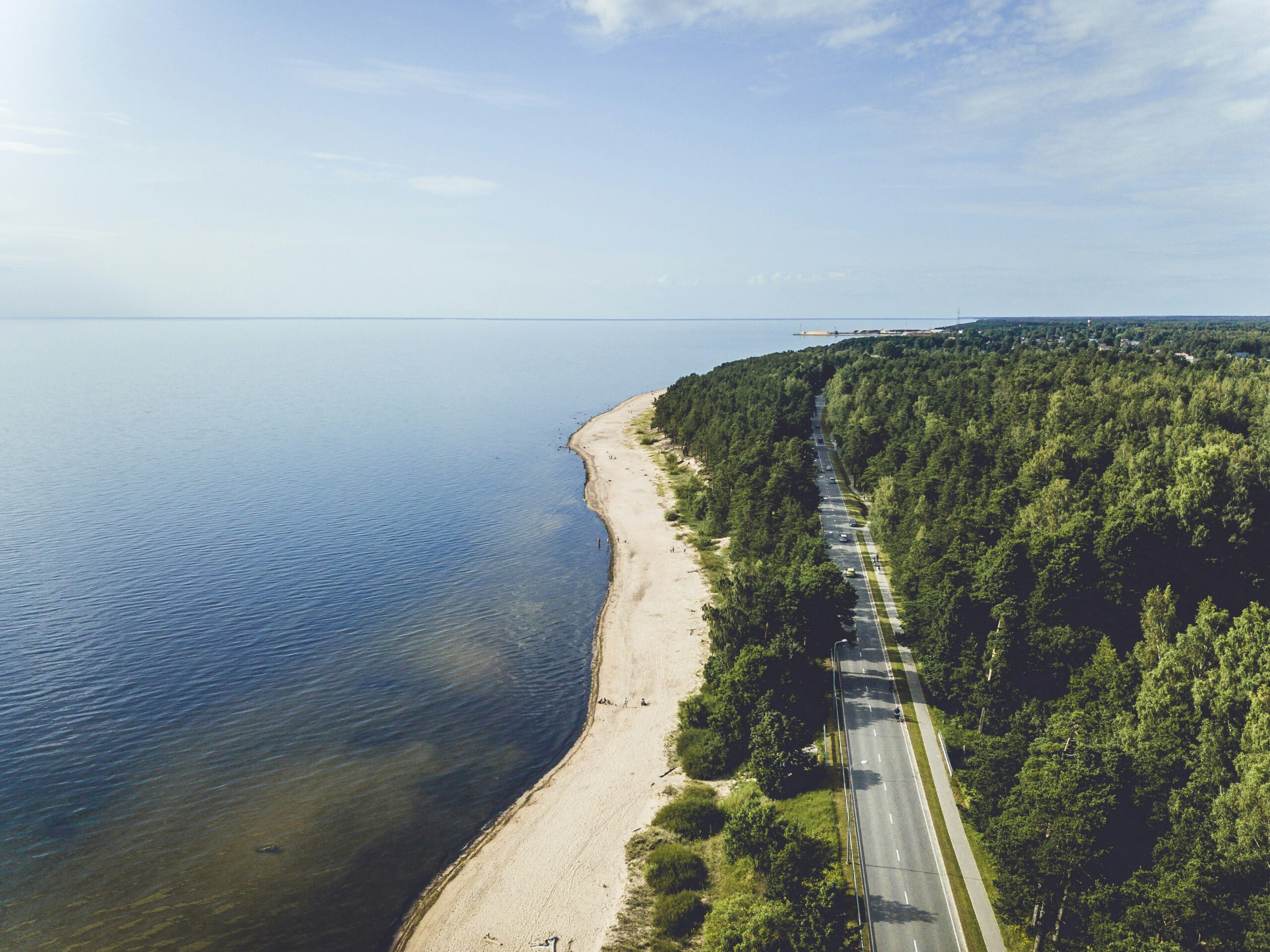
6. Free time
What are must-sees in the area?
I prefer the Saulkrasti beach over the Jurmala beach (the latter is the most popular). I take the train most often to go to other cities in Latvia. To cross borders mostly I take busses (luxexpress, ecolines, flixbus, etc).
What does not appear in the travel guide, but is worth a visit?
Not sure what is in the traveling guide. But I travelled also quite a bit outside of Latvia to neighbouring countries that are easier to reach when you are already in the Baltics.
Do you have general tips and tricks about leisure time?
If you like partying old town is the place to be, but there are also raves at an old Soviet airport, or in the Talinnas Kvartels. ESN provides a welcome week, which I can recommend since you can meet a lot of people in a short time, which really helps you during the semester.

